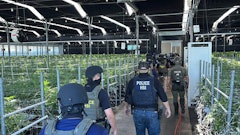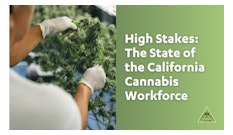
Representing more than 1,600 cannabis businesses across the state of California, two leading trade organizations are coming together to leverage institutional knowledge and bold political voices to advance the interest of those constituents. The Southern California Coalition and the California Growers Association have found common ground at a time when the state’s cannabis industry is still struggling to get out of the gate.
“We have crossed many thresholds over the last two decades, but we have yet to figure out a way to stop the infighting or create a statewide unified political voice that represents everyone who is licensed or is seeking a fair pathway to being licensed in the industry,” Hezekiah Allen, executive director of the California Growers Association, said in a public statement. “Regardless of cultural differences with the industry, our members work in an ecosystem that requires us to come together, so we are able to amplify our voice and raise red flags when regulations are harmful to patients, consumers, businesses or lack common sense. This collaboration will help ensure our voice is heard no matter if decision makers are at the state, county or local level.”
The two groups represent a broad swath of the state’s licensed industry: cultivators, manufacturers, distributors and retailers. Brian Blatz, founder of Verdant Distribution and a board member of the Southern California Coalition, told Cannabis Business Times that the primary goal of this collaboration is to keep the focus on local and state licensing—and to ensure that all interested businesses have a shot at competing in the largest cannabis marketplace in the world.
“Really, the idea behind it was to try to combine two of the larger organizations in the cannabis space to kind of be on the same message and on the same path, talking to both local and state governments,” Blatz said. “Locally, obviously, there are a lot of folks that are still not licensed, and [we’re] trying to find them a path to licensing. That's one of the major goals. On the state level, [we’re] just trying to get the state to understand our immediate needs as an industry. Obviously, the state is kind of brand new to understanding what this industry requires and what the hot buttons are. [Our goals involve] getting the state educated and understanding where the snafus are and finding ways to … streamline this industry and really bring it into the light.”The collaboration between the Southern California Coalition and the California Growers Association is vital on a regulatory and political level, of course, but it’s also a move that will contract the state’s geography a bit. Humboldt County is a 12-hour drive from Los Angeles—with no simple flight alternatives—and yet it’s the northern part of the state that’s seeing the bulk of the cannabis cultivation licenses.
The city of Los Angeles had planned to begin licensing growers on Aug. 1, but it’s unlikely that any of those businesses will be participating in the local supply chain for months. Blatz pointed out that retail operations in LA are being served by licensed businesses trekking down I-5 from the northern part of the state.
“You're seeing a lot of inroads being made by a lot of the northern California businesses that are already licensed—coming in and being able to take advantage of a lot less competition locally,” Blatz said. “The folks down here are struggling to get licensed, so they can get into the game that, frankly, they were already in for a long time. It's really kind of hampered a lot of the local businesses.”
That sort of institutional and political leverage is what’s needed, he said. As licensing agencies confront mounting stacks of business applications—each one describing a company that itself is confronting changing industry regulations—groups like the Southern California Coalition and the California Growers Association can help light the way to a more functioning and properly competitive playing field.
“We'll be able to influence legislators—both locally and at the state level— more effectively than in the past,” Blatz said. “This is a new industry. It's coming out of the dark ages, and a lot of these folks have had to fend for themselves for a long time. … A lot this is brand new. It takes time for everybody to figure it out and to realize that a rising tide lifts all boats.”
Top photo courtesy of Adobe Stock

























